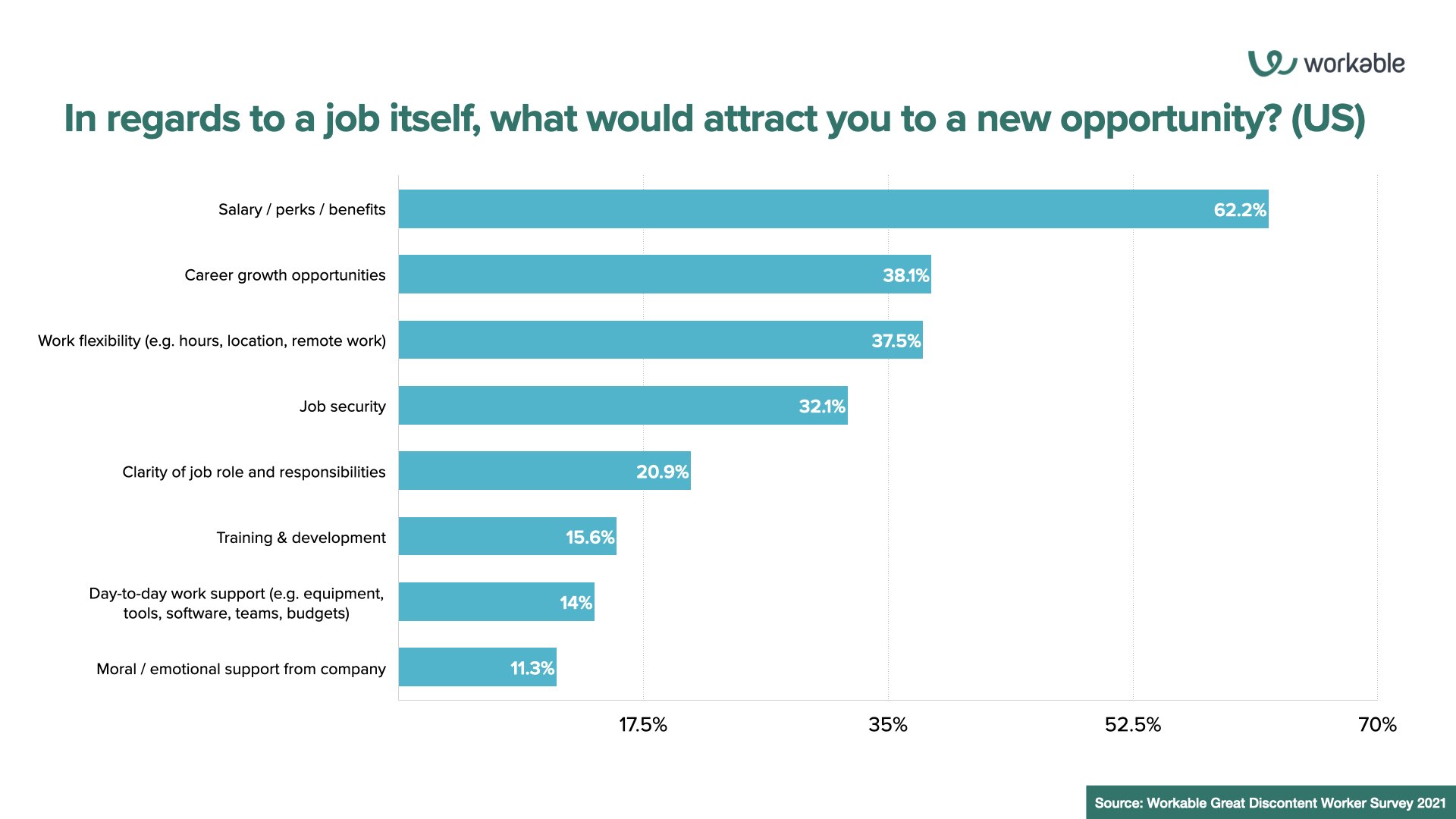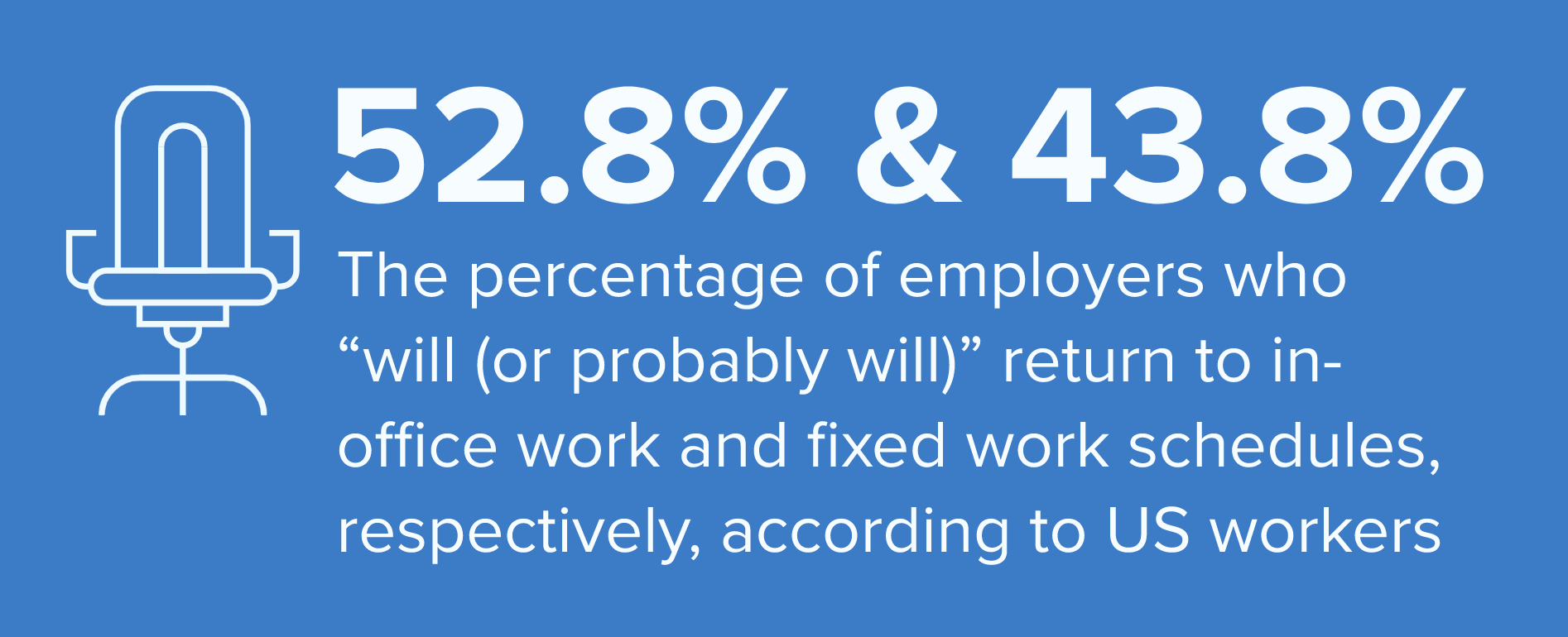37.5% of US workers value flexwork – but companies aren’t on board
According to the Great Discontent survey of US workers, work flexibility (whether remote work or flexible schedules) is the third-most popular benefit (37.5%) an employer can offer if they want to attract a new hire from another company.

It’s also the fourth-most popular item in need of improvement (26.6%) at respondents’ current places of employment.
It’s not just that flexible work has benefits – it’s a highly desired, and in many cases, much-needed component of work. If you, as an employer, can realistically offer this option – especially flexible schedules – your value proposition can only grow in the eyes of candidates who have a wealth of choices at their disposal. You may even find that the Great Resignation and the much-bewailed candidate shortage are things that don’t even apply to you.
If you don’t offer flexible work, especially if you could, the consequences could be considerable. Consider the backlash against Apple in their initial drive to move back to an in-person working environment. Employees left in droves for other options, and the media coverage was fierce and uncompromising.
This can’t reflect well on their reputation as an employer. A return to office has its merits – and in some cases, requirements – but in many cases, businesses have the technology and wherewithal to make it work. Employees themselves have shown that it can work as well.
The second lesson is that for workers, an outstanding brand reputation such as Apple’s doesn’t even matter that much (more on that below). Rather, people simply want the option to work flexibly.
We’re going to see more of this misalignment of priorities between employees and their employers – going forward. When we asked respondents about the current situation in regards to remote/hybrid work at their place of employment, more than half (52.8%) say their employer introduced it during the pandemic and will (or probably will) return to on-location work once things stabilize.
The same disconnect applies to flexible work schedules as well, with 43.8% saying flexible work schedules were introduced during the pandemic and will (or probably will) go back to set schedules when things return to ‘normal’ – whenever that may be, or whatever that may be.
There’s a clear divide between employees and employers in work setups. Many employees like remote work and especially love flexible schedules. Many even need one or both. And a good portion of employers aren’t adapting to that new reality – the stigma against flexible work doesn’t help much, either.
With such a resounding voice in our dataset valuing flexible work, consider establishing it as a permanent strategy where possible if you want to attract new talent and retain your existing employee base. Your success as a company may depend on it.






